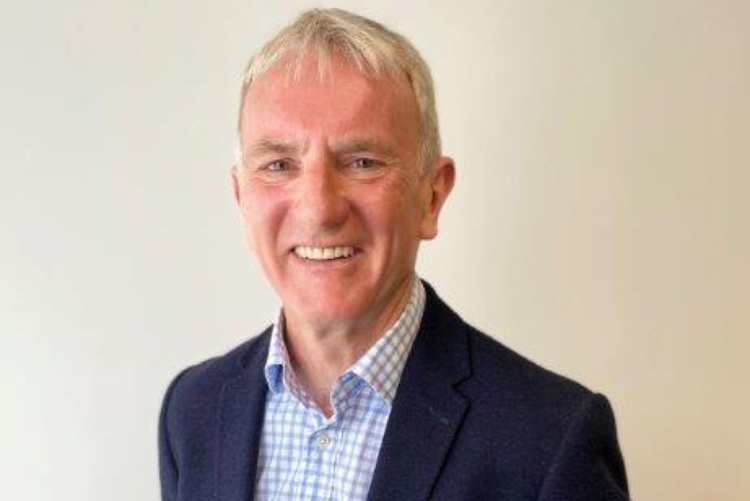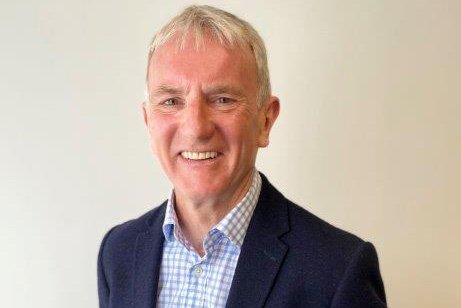With six locations across New South Wales and approximately 680 residents, the Scalabrini Villages have faced many difficulties arising from the COVID-19 pandemic.
The new chairman, Robin Freeman, is tackling these challenges.
Freeman boasts a wealth of experience in financial services and has previously worked as the chief executive of the Anglican Retirement Villages.
Why did you decide to join Scalabrini Villages, especially at such a difficult time for aged-care services?
For the past 12 years, I have been involved with organisations that provide services to seniors.
I have developed an understanding of what is needed to improve the wellbeing of clients.
I feel it is important to use that knowledge.
Scalabrini Villages face challenges, as do many aged-care service providers, and I am drawn to these challenges.
I am working with a good team to change and improve things.
The Scalabrini Villages are unique in Australia because they were created for the Italian community, so that they can continue to speak the language and observe their traditions as they retire. Is this what drew you to the position?
Yes! Italian traditions and culture are at the heart of the Scalabrini Villages and should remain so.
It is true that the demographic change means that first and second generation Italian migrants will gradually decrease in number and people of different ethnic backgrounds will be residents of the Scalabrini.
However, there is no better culture to build our future on than the Italian culture.
Do you believe that this goal can be achieved with the current board, which comprises only one person of Italian origin?
Yes, I believe that the management team can and will maintain the ethos of the Scalabrini Villages.
That said, I think it would be beneficial to have more people with Italian heritage on our board and on our management teams.
This is one of our goals that we have to balance in tandem with hiring the most qualified person for the job.
We will make sure that every person who joins the Scalabrini team understands, respects and preserves the Italian culture.
This is the key to achieving our goals.
What does the future look like for the Scalabrini Villages? How should the Italian community be involved?
This is a huge question, and to be honest, I don’t have an answer yet.
We must pave the way for the development and growth of the Scalabrini Villages.
Our first task, however, is to guarantee that our facilities have the financial support and high-quality service models in place to plan for their futures with confidence.
I am eager to work closely with the Scalabrini Fathers to make sure our missions go hand in hand and I know they feel the same way.
I think we will start planning a trip to visit them later in the year.
We certainly need to involve the Italian community in this.
How are the Scalabrini Villages situated, financially?
In recent years, operational losses have weakened the financial position of the Scalabrini Villages.
Construction programs to improve the housing standards of residents used significant capital.
We urgently need to reverse operational results.
It is clear what needs to be done and our job now is to carry out our plans.
We are able to strengthen our financial position with the sale of land in Bringelly.
This land cannot possibly be part of our future development plans due to its zoning and location.
We should receive the proceeds from the sale this financial year.
Construction is needed in the Drummoyne, Austral and Bexley Villages. Where will the money for that work come from?
These are three great real-estate development opportunities for the Scalabrini Villages.
First, we must settle our debts and this should be achieved this financial year, assisted by the sale of the Bringelly land.
We have already begun work on the feasibility of redeveloping the Drummoyne, Austral and Bexley properties.
This requires planning and engineering advice and market demand analysis before even getting to the important financial considerations.
We will work progressively through these assessments over the next 12 months.
Are the Scalabrini Villages employees qualified to handle the exceptional circumstances brought about by the pandemic?
I am very grateful to the loyal and capable staff who provide services to people in need.
Caring for the elderly is demanding work and over the past 18 months, during the pandemic, it has become more difficult.
For my part, I can only emphasise the importance of our staff, the skills they bring to their jobs and the commitment they show to their clients.
How are the relationships between residents and their families?
My observation is that relationships are good.
Families respect and appreciate our care for their loved ones.
We don’t do everything right every day and it is in those moments that families rightly tell us what we can improve on!
I believe we share the responsibility for care and we are trying to involve families as much as possible in caring for their loved ones.
Government demands for aged-care institutions continue to grow. Are public funds adequate enough to support them?
No! Would you expect me to have a different answer?
It’s a fact that, for a number of years, government funding for residential aged-care has not kept pace with the costs accrued from running the institutions.
More money needs to be devoted to the care of older people and this is recognised by every study undertaken, including the results of the Royal Commission.
“Our job is to provide the best possible care within the funding limits in a way that guarantees the long-term future of the Scalabrini Villages.
Right now, we are focused on our plans to improve the care and the wellbeing of residents.












